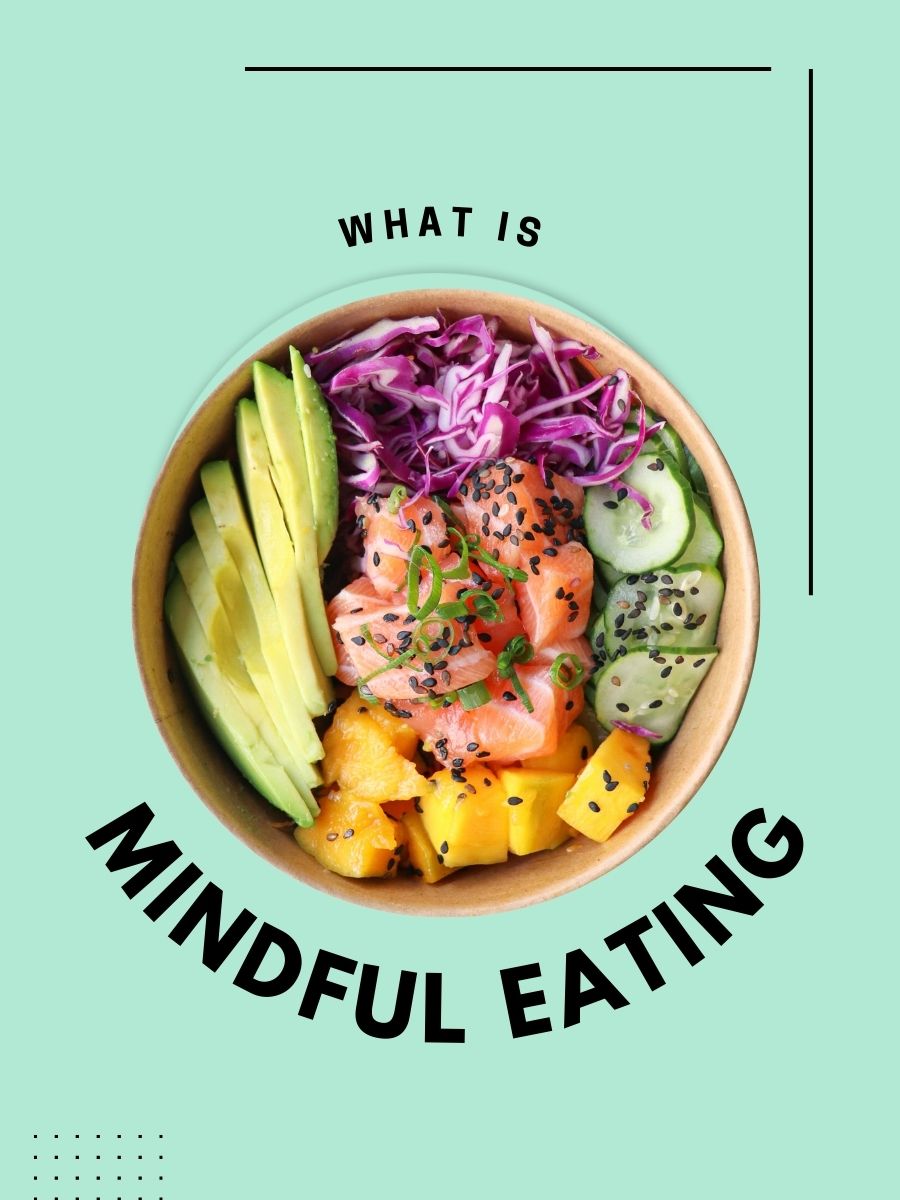What is Mindful Eating

So -what the heck is mindful eating and how much time is this going to take? Isn’t that the attitude of so many of us when there is another issue added to our list of things to do? How many of us rush through our days, eating in the car, eating standing up and on our way to the next task, eating while working, eating while watching TV, talking on the phone, or playing video games? These are the kinds of scenarios that can develop binge eating, emotional eating, and/or stress eating. Culturally, we have devalued mealtime seeing it as a chore instead of an opportunity to pause during the day and nourish our bodies and rest our minds. We have lost track of how to value mealtime as an opportunity for healing.
WHAT IS MINDFUL EATING?
Mindfulness is an intentional focus on one’s thoughts, emotions, and physical sensations in the present moment. Eating mindfully means that you are using all of your physical and emotional senses to enjoy your food. To achieve this, one must slow down and pay attention, being present with the act of preparing and eating your food. Mindful eating promotes healthier food choices simply from the fact you are paying attention.
As we become more aware of our habits/food choice patterns, we can make small changes each day towards changing behavior patterns and improving our eating experiences. Mindful eating focuses on your eating experiences, body sensations, and thoughts and feelings about food with heightened awareness. Attention is paid to internal and external physical cues and your responses to those cues. The goal is to promote a greater understanding of why we eat, what we eat, and how much to eat without judgment. However, ultimately the goal is for an enjoyable eating experience that nourishes our bodies, reduces our overall stress, and promotes healing.
HOW DOES MINDFUL EATING WORK?
- Before eating, check your stress level, if high, take a brief walk, do some breathing exercises, or drink some water to reduce stress before sitting down to eat. This helps to transition to the mindset of being present.
- May use breathing, meditation, or prayer before or after the meal to slow down and transition to mealtime.
- Mindful eating considers the wider spectrum of the meal – where did the food come from? How was it prepared? Who prepared the food?
- Noticing the internal and external cues that affect how much we eat – Am I chewing my food? Am I rushing through lunch?
- Noticing how the food looks, tastes, and feels in our bodies as we eat.
- Acknowledges how the body feels after the meal – am I bloated or pleasantly full?
- Expresses gratitude for the meal – I’m grateful I have access to nutritious food.
- Reflects on how our food choices affect our local communities and global environments.
PRACTICES OF MINDFUL EATING
- Honor the Food – where did the food come from, gratitude to those who prepared it, and eat without distraction.
- Add beautiful music while eating or candles or flowers to honor and focus on the present moment.
- Engage All the Senses – Pause and notice the colors, textures, smells of the food and how you felt eating it.
- Serve Food in Modest Portions – Use a 9-inch plate and fill it only once.
- Savor small bites and chew thoroughly – plan for enough time to eat slowly.
- Eat Slowly – Eat until you are 80 % full and then stop.
- Don’t skip meals – going too long without eating increases strong hunger, which leads to grabbing the easiest food available (i.e. Junk food).
- Eat a plant-based diet as much as possible – Production of animal-based foods takes a heavy toll on the environment. We are not only preventing heart disease and colon cancer by eating less meat, we are also supporting better environmental practices.
- Use the one-bite rule for special foods and/or desserts. You can experience the dessert and not deprive yourself, without overdoing it.
MINDFUL EATING IS A GENTLE APPROACH
Mindful eating is a gentle approach to adding quality time/pleasurable moments or glimmers to our days. Mindful eating can lead to greater psychological well-being, increased pleasure and satisfaction while eating, and greater body satisfaction. As we become more intentional with nourishing our bodies in a gentle, thoughtful way, we tend to make more healthy food choices. And as we make healthier food choices, we gently redirect ourselves towards feeling better, having more energy, and reducing our risks of chronic disease.
It’s a profound practice that benefits both the individual and their communities as it has a ripple-out effect. With a small amount of effort, mindful eating is a health practice one can start implementing and benefitting from immediately. As you practice, your attitude towards eating and nourishing your body is refined and moved into the energy of thankfulness. When you are in the energy of thankfulness, you are in the energy of healing. Moving through your days in this healing mode adds so much intention and peacefulness to your journey in life. And – who doesn’t want a little more of that?

Bethany Keith
